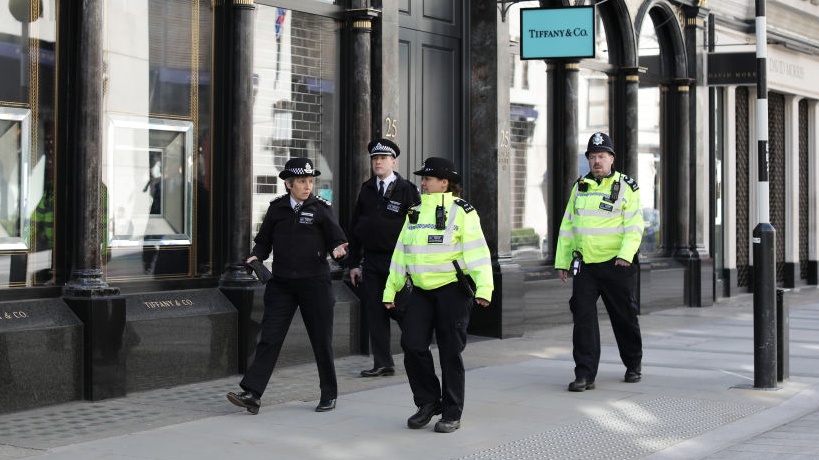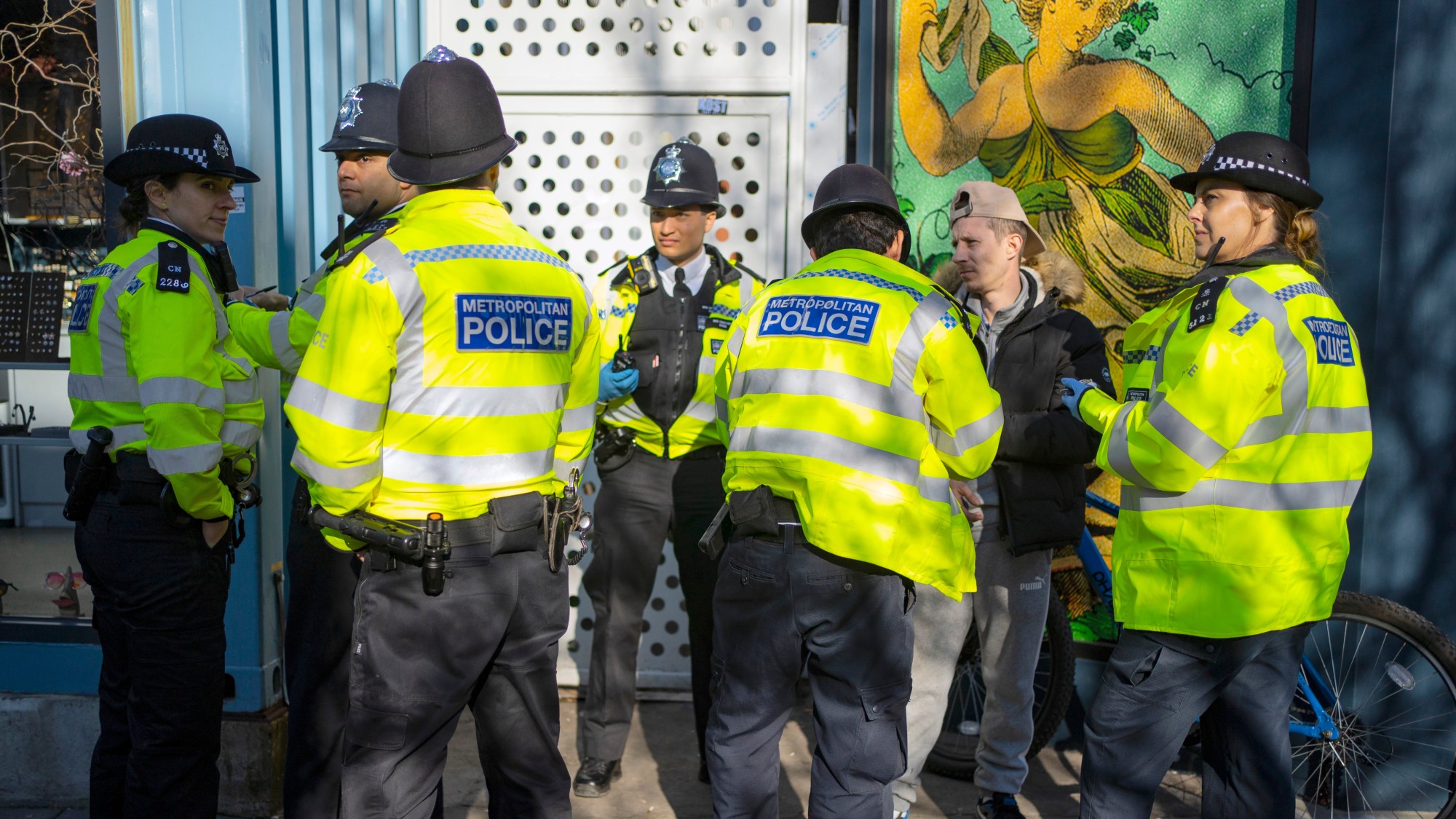Coronavirus: police warn enforcing lockdown ‘may be impossible’
Officers say force lacks numbers required to backup government measures

A free daily email with the biggest news stories of the day – and the best features from TheWeek.com
You are now subscribed
Your newsletter sign-up was successful
Police have warned that enforcing Britain’s coronavirus lockdown may be impossible due to a lack of officers and insufficient powers to enforce the government rules.
Peter Fahy, a former chief constable of Greater Manchester Police, told The Guardian that UK police “can’t really enforce” the lockdown because to do so would require a “paramilitary style of policing”.
“The police in this country don’t have that presence on the ground,” Fahy said. “The police have withdrawn from lots of small towns. They go from incident to incident.”
The Week
Escape your echo chamber. Get the facts behind the news, plus analysis from multiple perspectives.

Sign up for The Week's Free Newsletters
From our morning news briefing to a weekly Good News Newsletter, get the best of The Week delivered directly to your inbox.
From our morning news briefing to a weekly Good News Newsletter, get the best of The Week delivered directly to your inbox.
Comparing the UK to Italy, where a tight lockdown has been closely enforced, he added: “Italy has twice the number of police officers we do.
“How are you going to disprove someone is going to Sainsbury’s or Morrisons for the first time that day? It’s going to have to be community pressure and making it clear it is socially unacceptable.”
–––––––––––––––––––––––––––––––For a round-up of the most important stories from around the world - and a concise, refreshing and balanced take on the week’s news agenda - try The Week magazine. Get your first six issues for £6–––––––––––––––––––––––––––––––
The Guardian reports that internal police estimates suggest one in 10 police officers are already off sick or self-isolating because of the virus.
A free daily email with the biggest news stories of the day – and the best features from TheWeek.com
The paper adds that the absence rate is expected to grow as the virus spreads, while police may also have to step in to cover gaps in mental health support services and delays in ambulances arriving.
John Apter, the chair of the Police Federation of England and Wales, said the 120,000 officers he represents will have to rely on social pressure to enforce the new measures. Forces are currently awaiting guidance from the government on how it is expected to handle the new measures.
Apter said: “We police by consent. Police officers are not going to be militaristic in their approach. The practicalities of policing it are going to be incredibly difficult… We still have emergency calls to attend and we don’t have enough officers.”
The prime minister announced on Monday evening that people may only leave home to exercise once a day, to travel to and from work where “absolutely necessary”, to shop for essential items and to fulfil any medical or care needs.
Boris Johnson added that if people do not follow the rules, police will have the power to enforce the measures through fines and dispersing gatherings.
However, according to The Independent, chair of the National Police Chiefs’ Council, Martin Hewitt, said that the legislation required to enforce the lockdown has not been enacted yet.
He said this time was an “opportunity” for police to speak to people to urge them to go back home, but added: “Ultimately, if people do refuse to abide by the rules then we will need to enforce them.”
Amid public confusion over what is and is not permitted, phone lines have become jammed at some police stations, The Guardian says.
On Monday night, the chief constable of Northamptonshire police tweeted: “Please do not cripple our phone lines with enquiries as to what you can and cannot do during the conditions imposed by the Prime Minister this evening.”
Humberside Police tweeted: “We’ve had many calls on our 101 line from people seeking answers, but at this stage we are not able to answer all of your enquiries.”
-
 Local elections 2026: where are they and who is expected to win?
Local elections 2026: where are they and who is expected to win?The Explainer Labour is braced for heavy losses and U-turn on postponing some council elections hasn’t helped the party’s prospects
-
 6 of the world’s most accessible destinations
6 of the world’s most accessible destinationsThe Week Recommends Experience all of Berlin, Singapore and Sydney
-
 How the FCC’s ‘equal time’ rule works
How the FCC’s ‘equal time’ rule worksIn the Spotlight The law is at the heart of the Colbert-CBS conflict
-
 Why have homicide rates reportedly plummeted in the last year?
Why have homicide rates reportedly plummeted in the last year?Today’s Big Question There could be more to the story than politics
-
 How the ‘British FBI’ will work
How the ‘British FBI’ will workThe Explainer New National Police Service to focus on fighting terrorism, fraud and organised crime, freeing up local forces to tackle everyday offences
-
 ‘Stakeknife’: MI5’s man inside the IRA
‘Stakeknife’: MI5’s man inside the IRAThe Explainer Freddie Scappaticci, implicated in 14 murders and 15 abductions during the Troubles, ‘probably cost more lives than he saved’, investigation claims
-
 3 officers killed in Pennsylvania shooting
3 officers killed in Pennsylvania shootingSpeed Read Police did not share the identities of the officers or the slain suspect, nor the motive or the focus of the still-active investigation
-
 Dash: the UK's 'flawed' domestic violence tool
Dash: the UK's 'flawed' domestic violence toolThe Explainer Risk-assessment checklist relied on by police and social services deemed unfit for frontline use
-
 The ethics behind facial recognition vans and policing
The ethics behind facial recognition vans and policingThe Explainer The government is rolling out more live facial recognition technology across England
-
 Crime: Why murder rates are plummeting
Crime: Why murder rates are plummetingFeature Despite public fears, murder rates have dropped nationwide for the third year in a row
-
 The Met police's stop and search overhaul
The Met police's stop and search overhaulThe Explainer More than 8,500 Londoners have helped put together a new charter for the controversial practice